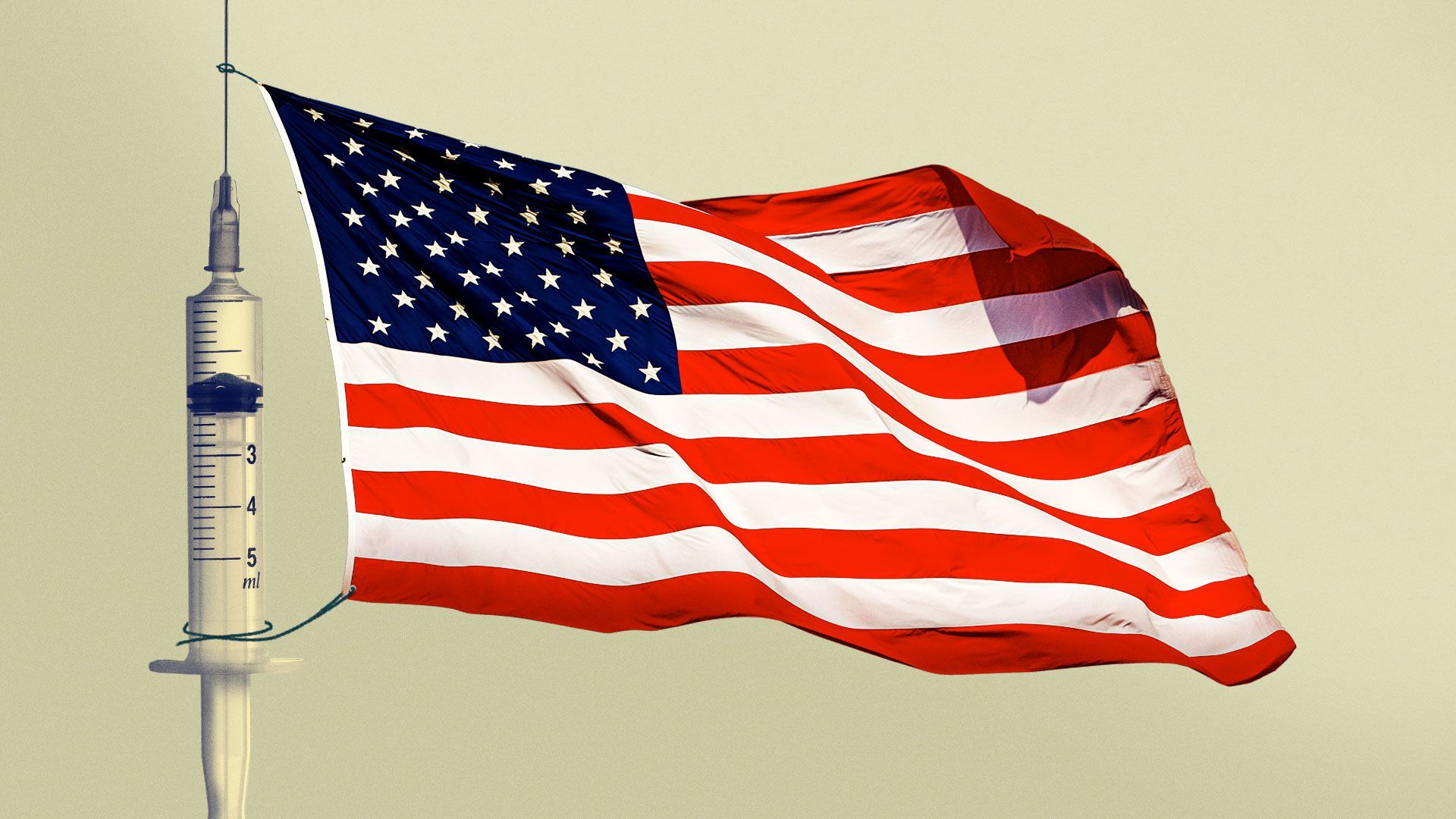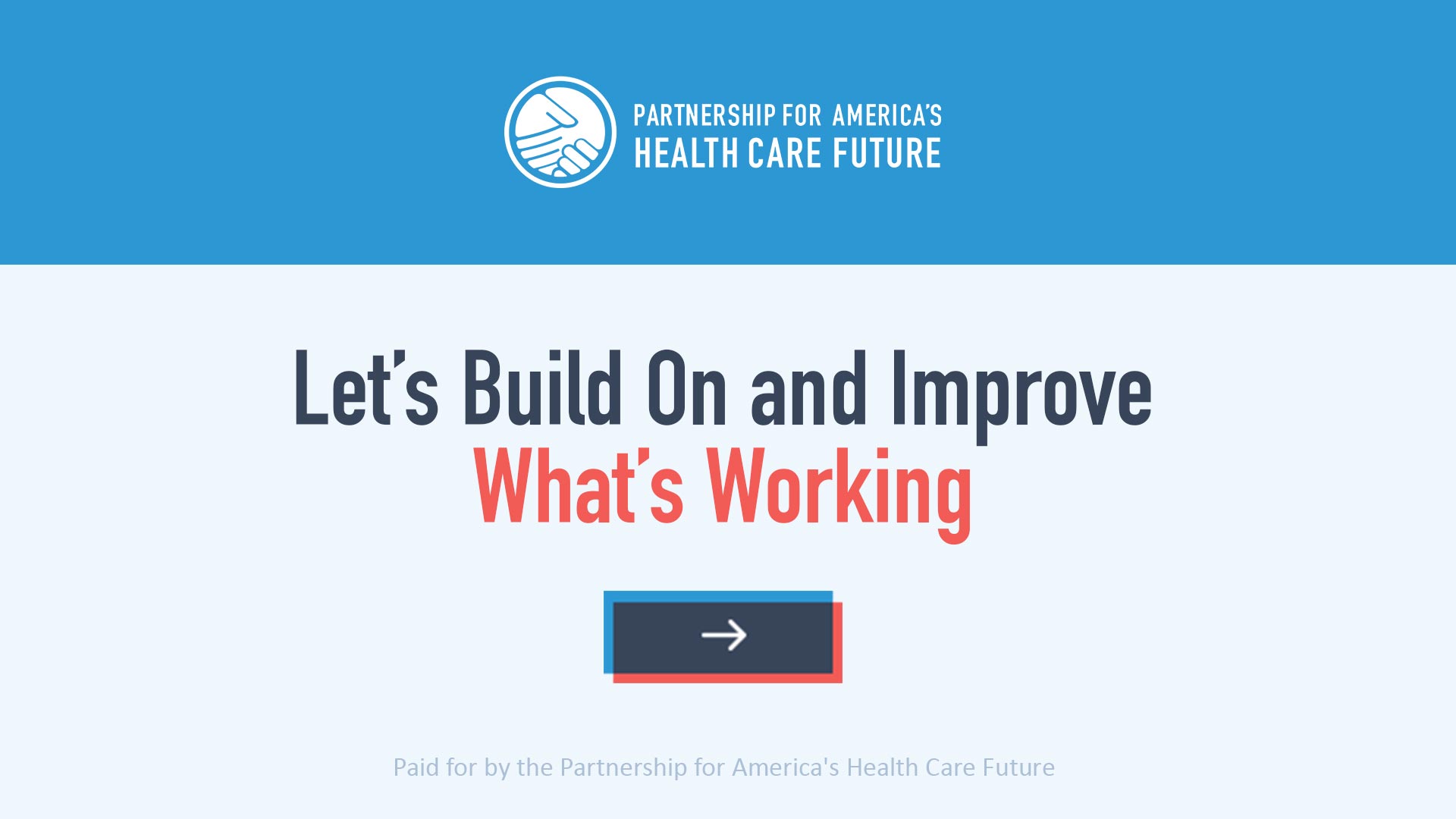| | | | | | | Presented By Partnership for America's Health Care Future | | | | Vitals | | By Caitlin Owens ·Jan 20, 2021 | | Good morning. Today's word count is 902, or a 3-minute read. | | | | | | 1 big thing: The public health presidency |  | | | Illustration: Eniola Odetunde/Axios | | | | Joe Biden will take office today facing a challenge none of his modern predecessors have had to reckon with — his legacy will depend largely on how well he handles a once-in-a-century pandemic that's already raging out of control. The big picture: Public health tends to be relatively apolitical and non-controversial. The limelight in health care politics typically belongs instead to debates over costs and coverage. But that will all change for the Biden administration. "The pandemic is a personal issue. It's totally different," said Bob Blendon, a professor at both the Harvard T.H. Chan School of Public Health and the Harvard Kennedy School of Government. - "A year from now, if people can't have their kids go back to school, their families are dying, they can't meet with loved ones, and they can't go to religious services, that's totally different than the debate over the uninsured," he said.
Where it stands: Biden will take the reins of a situation that's arguably at its worst. - The U.S. surpassed 400,000 coronavirus deaths yesterday. Cases, hospitalizations and daily deaths continue to hover near record heights, and a more contagious strain of the virus is expected to soon become the dominant one.
- The initial weeks of the vaccination campaign have been disappointing and chaotic, and widespread vaccine hesitancy, which could undermine the entire effort, will become a more tangible problem as supplies increase.
- Political politicization, which has hindered every step of the pandemic response, is baked in and isn't going anywhere.
What's next: Biden's plans for the coronavirus hew closely to experts' recommendations, and he's named a highly experienced team. - But in a year or so, the results will speak for themselves: The pandemic will either be behind us, or it won't.
|     | | | | | | 2. Medical tourism survives the pandemic |  | | | Illustration: Sarah Grillo/Axios | | | | Americans are still traveling to other countries for medical procedures, despite safety concerns and travel restrictions brought on by the pandemic, the New York Times reports. Why it matters: Medical tourism took a hit last year, but not a fatal one, especially after the pandemic cost millions of Americans their jobs and their health insurance, Axios' Marisa Fernandez writes. The big picture: Pre-pandemic, millions of Americans traveled to other countries for savings of between 40 to 80% on medical treatments, according to the global medical tourism guide Patients Beyond Borders. The state of play: Some countries that have closed their borders to tourists still allow essential travel, which includes medical procedures. - Mexico and Costa Rica have become the most popular destinations for dental care, cosmetic surgery and prescription medicines.
- Thailand, India and South Korea draw in patients for more complex procedures including orthopedics, cardiovascular, cancer and fertility treatment.
Go deeper: Even insurers will sometimes foot the bill for "pharma tourism." |     | | | | | | 3. Seniors losing interest in vaccine trial | | Seniors are dropping out of an ongoing coronavirus vaccine trial, now that more of them are eligible for vaccination, the Washington Post reports. - Convincing people who are eligible for vaccines to instead participate in a trial — where they might receive a placebo — is an uphill battle.
- "The window is closing on the ability to conduct a randomized trial,'' Gregory Glenn, the president of research and development at Novavax, which is enrolling a trial for a potential vaccine, told the Post.
Between the lines: One alternative to placebo-controlled trials are trials that compare an investigational drug against an existing one. - But the Pfizer and Moderna vaccines' high rates of efficacy could make this kind of trial difficult.
The bottom line: "The future of large-scale trials [for coronavirus vaccines] is in doubt,'' Arthur Caplan, a clinical trial specialist at the New York University Langone medical center, told the Post. - "The more vaccines appear with either emergency approval, expanded criteria or plain licensing, there's no way that people are going to sign up for trials with placebo controls."
|     | | | | | | A message from Partnership for America's Health Care Future | | Let's build on and improve what's working | | |  | | | | When it comes to what's next in health care, it's critical we continue to build on and improve what's working – where private coverage, Medicare and Medicaid work together to expand access to affordable, high-quality health coverage and care. | | | | | | 4. Vaccine trials underway in children | | On the other hand, ongoing trials may produce data by this summer to indicate whether the vaccines are safe for children, Bloomberg reports. Why it matters: Children generally aren't at risk of serious coronavirus infections, but vaccinating them will be key to protecting the adults around them and, eventually, reaching herd immunity. Details: Pfizer and Moderna began recruiting participants for their clinical trials late last year. - The University of Oxford, which developed a vaccine with AstraZeneca, is planning to begin tests in 12-to-18-year-olds next month, and Johnson & Johnson will likely begin trials shortly after receiving results from its adult studies.
- Clinical trials for children generally begin with teenagers and then work their way down to younger ages.
What we're watching: The sooner children have a vaccine, the sooner schools and child care can go back to normal, which will greatly ease the burden on millions of parents. |     | | | | | | 5. Catch up quick |  | | | Illustration: Aïda Amer/Axios | | | | President-elect Biden today will issue an executive order that mandates masks be worn on all federal building and lands by federal employees and contractors and encourage Americans to commit to his "100-Day Masking Challenge." Biden will order the U.S. to rejoin the World Health Organization, ceasing a withdrawal process the Trump administration had started. The president-elect will ask the Centers for Disease Control and Prevention to "immediately" extend the federal eviction moratorium until the end of March and ask other federal agencies to extend foreclosure moratoriums on federally-backed mortgages. The incoming administration is planning extraordinary steps to protect its most prized commodity, Biden, including requiring daily employee COVID tests and N95 masks at all times, Axios' Hans Nichols reports. Secretary of State designate Tony Blinken announced in a confirmation hearing on Tuesday that Biden would bring the U.S. into the COVAX initiative — the global effort from the World Health Organization and other groups to ensure that every country has access to COVID-19 vaccines. Infectious disease expert Anthony Fauci said on Tuesday that if the coronavirus vaccine rollout by the incoming Biden administration goes as planned, the U.S. could start to see effects of herd immunity and normalcy by early-to-mid fall. |     | | | | | | A message from Partnership for America's Health Care Future | | Let's build on and improve what's working | | |  | | | | Every American deserves access to affordable, high-quality health coverage and care. When it comes to what's next in health care, let's build on and improve what's working – where private coverage, Medicare and Medicaid work together. | | | | | | Axios thanks our partners for supporting our newsletters.
Sponsorship has no influence on editorial content. Axios, 3100 Clarendon Blvd, Suite 1300, Arlington VA 22201 | | | You received this email because you signed up for newsletters from Axios.
Change your preferences or unsubscribe here. | | | Was this email forwarded to you?
Sign up now to get Axios in your inbox. | | | | Follow Axios on social media:    | | | | | |






No comments:
Post a Comment